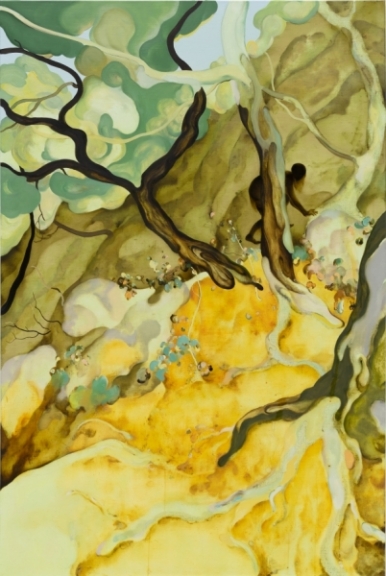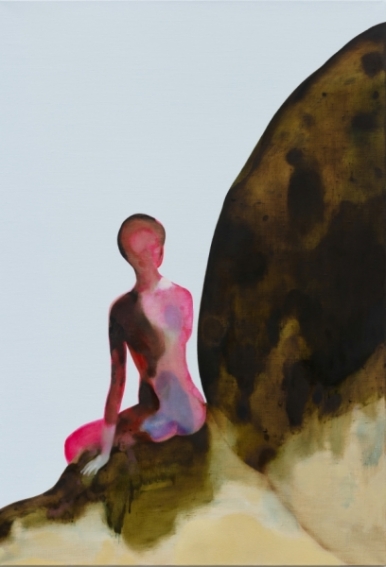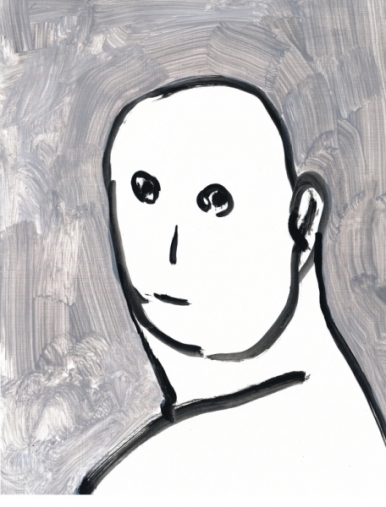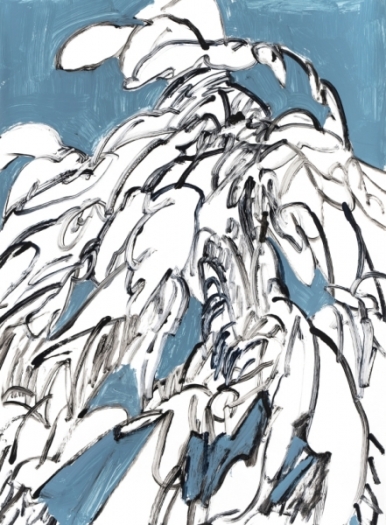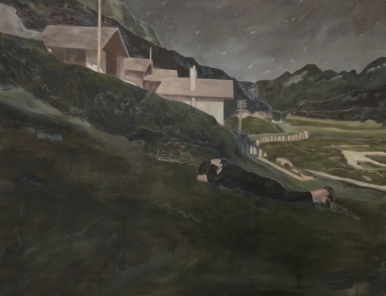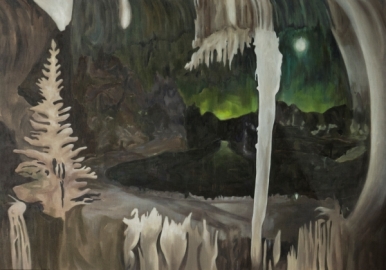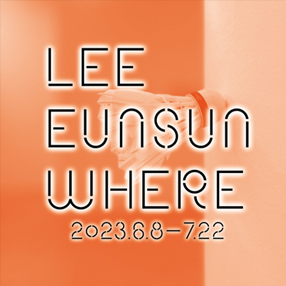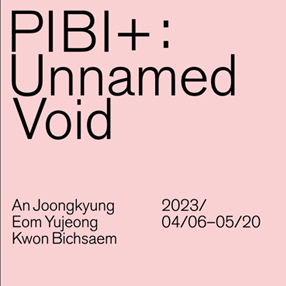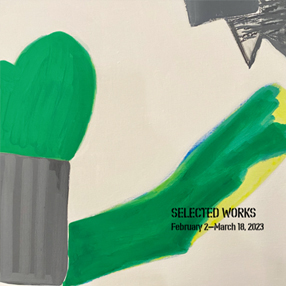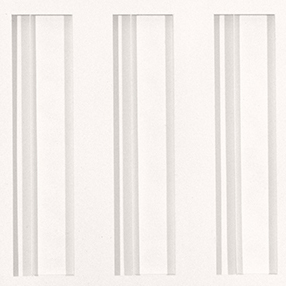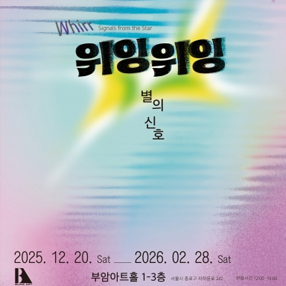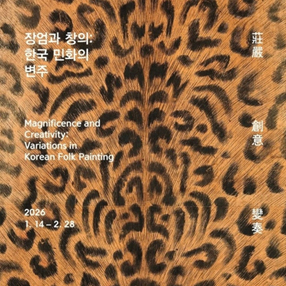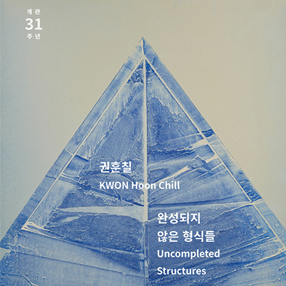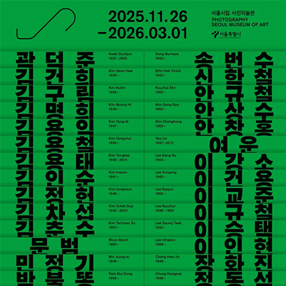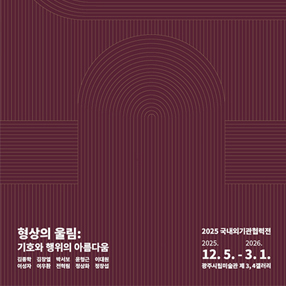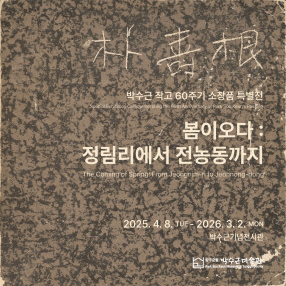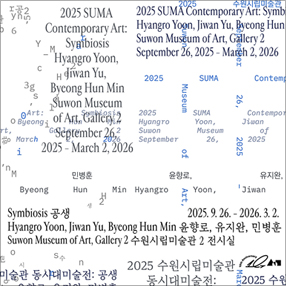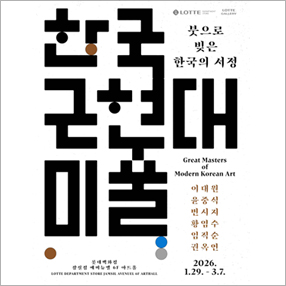본문
-

전시 포스터
-
안중경
그늘 아래서, 2022 Oil on linen 145.5 x 97 cm
-
안중경
기다림, 2022 Oil on linen 116.5 x 80 cm
-
엄유정
Night Face, 2021 Gouache, acrylic on paper 32 x 24 cm
-
엄유정
Plant, 2021 Gouache, acrylic on paper 79 x 58 cm
-
권빛샘
사색의 시간, 2023 Oil on linen 112.1 x 145.5 cm
-
권빛샘
Dawn, 2023 Oil on linen 130 x 200 cm
-
Press Release
< PIBI+ >는 다양한 매체로 작업하는 젊은 작가들을 소개하는 플랫폼 프로젝트로 2018년 첫 전시 < PIBI+ : 애니메이션 >으로 시작되었다. 순수미술을 전공한 후 영상애니메이션 작업으로 전환한 작가의 작품과 애니메이션을 전공하고 전문 애니메이터로 활동하는 젊은 감독들의 작품을 함께 소개하여 영상애니메이션의 매체확장성과 순수예술로서의 가능성을 실험하였다.
About Exhibition
2023년 5년만에 다시 기획된 < PIBI+ : Unnamed Void >는 ‘페인팅’을 주 매체로 지금 현재, 한국의 젊은 작가들이 이끄는 회화의 흐름 그 한 단면을 제시하고자 한다. 전시에 참여하는 안중경, 엄유정, 권빛샘 세 작가는 인물과 풍경에 내면의 심상을 투영하는 최근 작업을 통해 ‘평면과 회화’라는 익숙한 대상, 그 감각에 각기 다른 의문을 던지며 전시의 주제에 다채롭게 응답한다.
안중경(b.1972)의 그림은 ‘얼룩’이고 얼룩이 곧 본질이다. 엄유정(b.1985)이 보여주는 ‘자연’은 복잡하지만 평화롭고, ‘인간’은 단순하지만 여러 감정이 교차한다. 풍경과 형상을 어둠과 빛으로 대비시키는 권빛샘(b.1988)은 이를 통해 존재에 내재된 생명력을 보여준다. 이번 < PIBI+ : Unnamed Void >에서 안중경은 ‘얼룩’을 통해 서로 스며들고 결국 조화를 이루는 풍경과 인물에 대한 신작을, 엄유정은 익숙하지만 복잡한 자연을 모호하게 단순화시킨 식물페인팅과 이와는 대조적으로 간결한 몇 개의 선만으로 그린 인물드로잉을, 권빛샘은 양가적인 감정으로 빚어내는 낯선 공간과 상징을 어둠과 빛으로 대비시키는 작업을 선보인다.
안중경의 작업에서 ‘얼룩’은 작품을 결정짓는 중요한 요인이다. 얼룩은 대상의 외각 안으로 스며들고 번지면서 기존의 표상을 대체하고 새로운 피부(몸체)를 만들어낸다. 그의 얼룩은 인간과 자연의 실루엣 내부로 스며들어 같은 피부를 지니게 하고 이와 조화되어 하나의 피부-몸체를 이룬다. 깊이 없이 부유하는 피상(superficiality)처럼 보이는 실루엣의 표피는 얼룩의 결집체로 수많은 감정이 응축되어 있다. 연속적으로 끊임없이 변화하는 피상은 결국 실체와 하나가 된다. 얼룩으로 가득 찬 실루엣은 더럽혀진 ‘일부’가 아니라 ‘전체’로 녹아들어 주변의 존재나 상태에 융화된다. 얼룩은 대상의 완전함을 와해시키거나 파괴하는 부정의 존재가 아니다. 서로가 번지고 얽어매는 과정에서 끝내 화합하여 본질이 된다. 안중경의 얼룩은 기법이자 흔적이자 배경과 인물을 조화시키는 매개이며 이들이 분리된 것이 아니라 결국 하나임을 대변한다.
엄유정은 낯설지만 편안한 정경이나 상황에서 수많은 선을 응축시켜 식물을 그리고, 면을 압축한 듯한 화면에 몰개성의 인간을 그리며 자신만의 서사를 실험한다. 부분적으로 확대된 식물은 붓의 흐름이나 속도, 질감으로 인해 또 다른 풍경으로 구성된다. 식물의 일부를 묘사하는 단순한 획의 반복은 또 다른 전체가 되며, 속도가 느껴지는 힘찬 붓의 흐름은 화면에 끊임없이 변화를 일으키기도 한다. 붓이 흐른 자리가 빈 공간(여백)과 연결되어 화면은 마치 호흡하는 것처럼 편안해 보인다. 붓의 흐름이 빈 공간에도 활동을 일으켜 여백 자체가 붓질한 것처럼 작용한다.
반면 극도로 간결하게 표현된 인물 드로잉은 개성을 배제하면서도 몸짓과 분위기 만으로 더 많은 감정과 생각으로 이끈다. 엄유정은 복잡하고 분방한 자연을 자신만의 응축된 선과 색으로 눈에 익지 않은 평안함에 이르게 하고 역설적으로 몇 개의 선만으로 가늠할 수 없는 인간의 내면을 드러내며 자연과 인간에 대한 무의식의 심상을 효과적으로 보여주고 있다.
권빛샘은 풍경과 형상을 어둠과 빛으로 대비시키며 공간을 만들어간다. 그의 어둠은 여러가지 표정을 가지며 빛은 어둠의 조력자이자 방향성을 나타내는 상징이기도 하다. 어둠은 부정의 존재라기보다는 다양한 감정을 지니며 주변을 아우르는 작용을 한다. 어둠은 세상과 ‘나’ 사이의 경계에 만들어진 공간, 나를 숨기는 은신처이며 자신을 보호하고 세상을 바라보는 통로이자 안식처이기도 하다. 일종의 완충지대인 ‘어둠’ 안에서 작가는 세상과 조우하고 관계 맺고 외부를 주시한다. 작업에 등장하는 ‘망원경’, ‘부엉이’, ‘관찰자’는 모두 본다는 행위(seeing)와 관련 있으며, 보는 행위를 통해 대상의 본질에 다가서고 세계를 더욱 풍요롭게 하려는 무의식의 발현으로 볼 수 있다. 가상과 실재가 뒤엉킨 듯 연극적인 공간에서 빛은 어둠의 대적자가 아닌 한 몸이다. 어둠은 빛을 드러내는 장치에 그치지 않고 그 자체로 생명력을 품고 있다. 그렇기에 그의 어둠은 부정의 것, 결핍된 것이 아닌 빛을 잉태하는 어둠이다. 빛과 어둠이 불안정하게 뒤섞인 것처럼 보이지만 그것이 인도하는 끝에는 평안이 있다.
거대담론에서 멀찌감치 벗어나 개인에 중심을 둔 사고체계와 가치관은 동시대 작가들의 주요한 특징이며 이러한 기질은 작품에서도 반영된다. 안중경, 엄유정, 권빛샘 세 작가는 인물이나 풍경 때로는 정의내리기 힘든 공간을 그리지만 저마다 뚜렷이 구분되는 시선 속에서도 동질의 감성을 공유한다. 이들의 작업은 각자만의 평안에 이르는 과정을 보여주는 것일지도 모르겠다. 전시명인 ‘Unnamed Void’는 이들이 작가로서 가지는 근원적 고민이 작품의 고유한 언어가 되는, 확정되지 않는 가능성이자 이름 붙여지지 않은 어느 지점을 말하려고 한다. 각자의 감각으로 명명하는 세상은 얼룩일수도 식물일수도 어둠일 수도 있지만 수묵화의 여백처럼 숨 쉴 수 있는 빈 공간으로 작동하기를 바란다. 이번 < PIBI+ : Unnamed Void >를 통해 세 작가의 ‘빈 공간’에 공감하며 회화가 가지는 근원적인 시각의 의미와 즐거움을 함께 찾을 수 있기를 기대한다.
PIBI+, a project platform started in 2018, introduces young artists dedicated to various mediums. Held under the title PIBI+: Animation, its first installment – featuring works of an animation artist initially schooled as a fine arts major and those of directors professionally trained young animators – tested the expandability of animation film as a medium while exploring its possibilities as a form of fine art. Returning in 2023 after a five-year hiatus, the second PIBI+ presents under the theme of the painting, attempting to present a cross-section of today’s currents of painting led by young artists of Korea. Through their recent portrait and landscape works that reflect their internal imagery, the participating artists An Joongkyung, Eom Yujeong, and Kwon Bichsaem each respond to the theme at hand in their own colorful ways by posing varied questions regarding the familiar subject of the flat surface and painting and their impressions.
About Exhibition
The paintings of An Joongkyung(b. 1972) are “stains,” which are, in effect, their essence. Eom Yujeong(b. 1985) demonstrates a complex yet peaceful nature and simple human beings mingled with various emotions. Kwon Bichsaem(b. 1988) hints at the embodied vigor of entities by contrasting landscapes and shapes with darkness and light. PIBI+: Unnamed Void features An’s new canvas paintings about landscapes and figures that melt into each other through stains, eventually coming together in unity; Eom’s obscurely simplified plant paintings of familiar yet complex nature and her contrastingly brusque portrait drawings done just with a few lines; and Kwon’s works of darkness and light contrasted with unfamiliar spaces and symbols forged of ambivalent emotions.
The “stain” is a determining element that shapes the work of An Joongkyung, spreading on and becoming absorbed into a subject’s external to thus produce a new surface (body) and replace existing symbols. An’s stain permeates the interior of human and nature’s silhouettes, giving them a joint surface, the harmonizing of which fashions them into a single skin-body unit. Seemingly superficial – depthless and adrift – the covering of the silhouette is an aggregate of blemishes, a dense saturated collection of emotions, and the continuous and ever-changing state of superficiality ultimately merges with the actual to become one. The stain-covered outline is not about smudged portions but is an integration into the whole, becoming unified with the surrounding entities or states. Discolorations are far from hostile entities that tarnish or destroy the integrity of subjects but instead become their essence at the end of a proliferating and intertwining process. An’s stain is a technique, a trace, and a mediator that unifies backgrounds and figures and shows that, in the end, they are not separate but are one.
The artist Eom Yujeong experiments with her kind of narrative by painting greenery from unfamiliar yet comfortable landscapes or situations using numerous condensed lines and bringing indistinctive figures to a canvas of seemingly compressed surfaces. Partially enlarged plants are forged into new landscapes through the texture, direction, and speed of brushstrokes. The simple repetitive movements of the brush depicting the greens become a different whole, the apparent swift motion of the brisk strokes stirring up a feel of endless transformation within the frame. Trails left behind by the bristles connect to the blank spaces of the canvas to evoke a placid illusion of a breathing surface and incite action in the void, making the emptiness appear like the intended marks. On the other hand, the figures depicted with extreme simplicity may have removed characteristics that, in turn, conjure even more emotions and thoughts with just their gestures and ambiance. Eom effectively expresses the unconscious imagery of nature and people by ushering complex and unrestrained nature into a state of visually foreign serenity using her style of condensed lines and colors and paradoxically exposing the unfathomable human mind via just a few lines.
Kwon Bichsaem weaves her landscapes by way of contrasting darkness with light. Her night has many expressions, while the light is its collaborator and the symbol that indicates directionality. Rather than being an entity of negativity, the state of murk holds within a myriad of emotions and acts to embrace its surroundings. It is a space created between “the self” and the world, an area that is a site to unload unfavorable feelings but simultaneously a hideout, pathway, and haven where one can hide, protect one’s self, and take in the world. Nestled securely within the safety zone and protected from the world’s hazards, the artist meets and forms relationships with the universe, takes refuge, and observes her subjects. In a theatric arena where fiction and actuality intertwine, light is not the opponent but darkness itself. Kwon’s blackness is more than a device that bares light but an embodiment of vitality, an impregnation of light far from gloom and deficiency. A stillness of peace is at the path’s end of what appears to be an unstable mixture of light and darkness.
A system of thinking and values largely removed from mass discourse and focused on the self is a significant characteristic of contemporary artists, a disposition reflected in their work. Be it figures, landscapes, or even baffling spaces, respectively expressed through distinctly different perspectives, the three artists, An Joongkyung, Eom Yujeong, and Kwon Bichsaem, share a common sense of feeling. It may be that their work is a roadmap to how each arrives at their very own tranquility. The show’s title, Unnamed Void, speaks of that undecided potential and unnamed point somewhere, the unique language that builds a work born of an artist’s fundamental contemplations. The world designated by the artist’s individual style and feel, be it a stain, a plant, or darkness, aspires to engage as a breathable emptiness, like the void of an ink-and-wash painting. Through PIBI+: Unnamed Void, we hope audiences will find the unfilled spaces of the three artists relatable and discover together the fundamental visual meaning and joy of painting.전시제목PIBI+ : Unnamed Void
전시기간2023.04.06(목) - 2023.05.20(토)
참여작가 안중경, 엄유정, 권빛샘
관람시간11:00am - 06:00pm
휴관일일,월요일 휴관
장르회화
관람료무료
장소피비갤러리 PIBI GALLERY (서울 종로구 북촌로 125-6 (삼청동, 블루웍스사옥) )
연락처02.6263.2004
-
Artists in This Show
피비갤러리(PIBI GALLERY) Shows on Mu:umView All
Current Shows
-
위잉위잉: 별의신호
부암아트홀
2025.12.20 ~ 2026.02.28
-
장엄과 창의: 한국 민화의 변주
갤러리현대
2026.01.14 ~ 2026.02.28
-
권훈칠: 완성되지 않은 형식들 Uncompleted Structures
갤러리 도올
2026.01.16 ~ 2026.02.28
-
사진이 할 수 있는 모든 것
서울시립 사진미술관
2025.11.26 ~ 2026.03.01
-
형상의 울림: 기호와 행위의 아름다움
광주시립미술관
2025.12.05 ~ 2026.03.01
-
박수근작고 60주기 소장품 특별전《봄이오다 : 정림리에서 전농동까지》
박수근미술관
2025.04.08 ~ 2026.03.02
-
공생 Symbiosis: 2025 SUMA Contemporary Art
수원시립미술관
2025.09.26 ~ 2026.03.02
-
한국 근현대미술 : 붓으로 빚은 한국의 서정
롯데백화점 잠실점 에비뉴엘 아트홀
2026.01.29 ~ 2026.03.07




